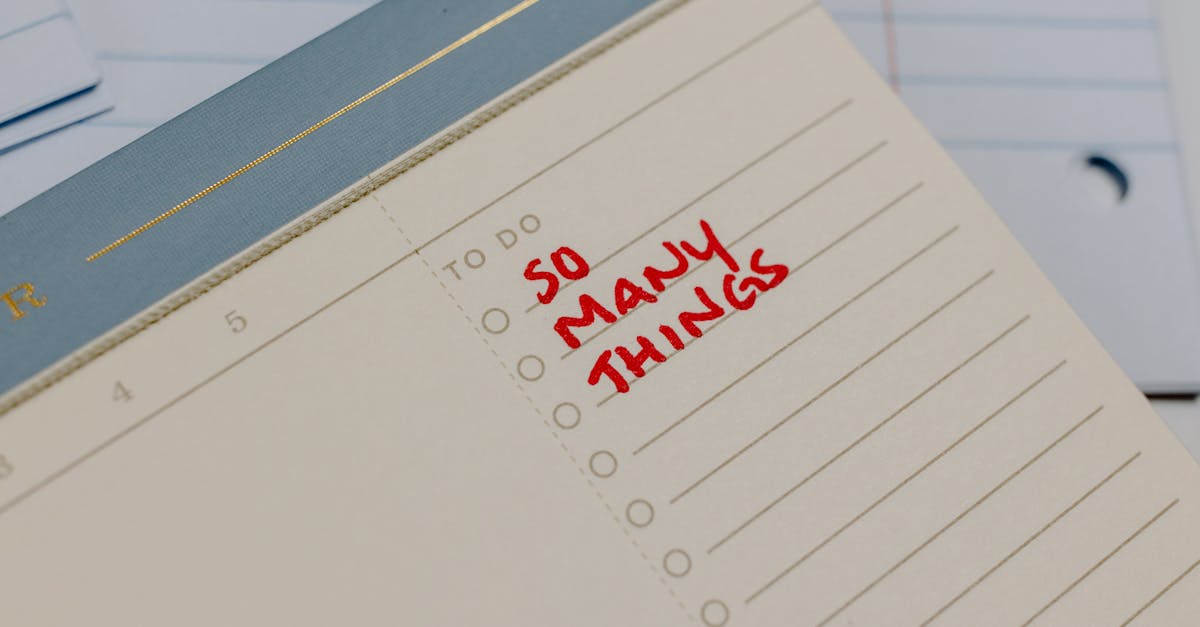Feeling overwhelmed by your daily tasks is a common challenge in today’s fast-paced world. With numerous responsibilities competing for your attention, it’s easy to become bogged down and lose focus. However, learning how to organize your daily tasks effectively can make a significant difference in your productivity and mental well-being. In this guide, we will explore various strategies to help you prioritize and manage your tasks without feeling overstressed.
Understand the Importance of Task Organization
Organizing your daily tasks is essential for several reasons:
- Enhances Productivity: A clear roadmap helps you accomplish your goals more efficiently.
- Reduces Stress: Knowing what you need to do can alleviate the feeling of being overwhelmed.
- Improves Focus: When tasks are prioritized, you can concentrate on one thing at a time.
Start Your Day with a Morning Routine
A productive day begins with a well-structured morning routine. Consider these tips to kickstart your day:
- Wake Up Early: Rising early gives you quiet time to plan your day.
- Review Your Goals: Reflect on your long-term goals and how today’s tasks align with them.
- Practice Mindfulness: Spend a few minutes meditating or journaling to set a positive tone.
Prioritize Tasks Using the Eisenhower Matrix
The Eisenhower Matrix is a powerful tool for prioritizing tasks based on urgency and importance. It consists of four quadrants:
- Quadrant 1: Urgent and Important – Tasks that need immediate attention.
- Quadrant 2: Important but Not Urgent – Tasks that are crucial for long-term goals.
- Quadrant 3: Urgent but Not Important – Tasks that can be delegated or postponed.
- Quadrant 4: Neither Urgent nor Important – Tasks that can be eliminated from your to-do list.
To learn more about the Eisenhower Matrix, check out this guide.
Make Use of a Digital Task Manager
Utilizing digital tools can streamline your task organization. Here are some popular task management apps:
- Todoist – Great for organizing tasks and setting reminders.
- Trello – A visually appealing board system for tracking projects.
- Asana – Ideal for team collaboration and project management.
These tools allow you to create, prioritize, and track tasks in a way that suits your personal workflow.
Break Tasks into Smaller Steps
Large tasks can feel daunting. Breaking them down into smaller, manageable steps can help reduce feelings of overwhelm. For instance:
- Instead of “Write report,” try “Draft introduction,” “Gather data,” and “Create visuals.”
- This approach not only makes the task feel more achievable but also provides small wins that boost motivation.
Set Time Limits and Take Breaks
Establishing time limits for task completion can enhance focus and efficiency. Consider using techniques like the Pomodoro Technique, which involves:
- Working for 25 minutes
- Taking a 5-minute break
- After completing four cycles, take a longer break (15-30 minutes)
This method helps maintain your energy levels and prevents burnout throughout the day.
Reflect and Adjust Regularly
At the end of each day or week, take time to reflect on your progress. Ask yourself:
- What tasks did I complete successfully?
- What could I improve on?
- How can I adjust my planning for next week?
By evaluating your performance and making necessary adjustments, you can continuously improve your task organization skills.
Conclusion
Organizing your daily tasks doesn’t have to be a source of stress. By implementing structured techniques like prioritization, breaking tasks into manageable parts, and utilizing digital tools, you can effectively boost your productivity without feeling overwhelmed. Remember, it’s all about finding a system that works for you and making adjustments as necessary. Start today, and take control of your daily tasks!

Leave a Reply